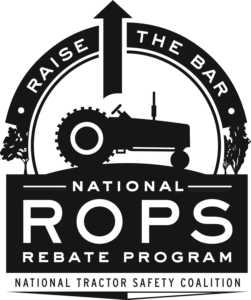What Happened to the New York ROPS Rebate Program?
by Matthew Alfultis
Within agriculture, tractor rollovers account for the most fatalities (approximately 125 per year), as older tractor models lack proper protection. In 2006, the ROPS Rebate Program was launched in New York to help farmers install rollover protective structures (ROPS) on any tractor without one. ROPS, when used with seatbelts, are proven to be 99% effective in preventing serious injury or fatality in the event of a tractor overturn. Since the start of the Program, we have facilitated the installation of 1,600 roll bars across New York State, preventing at least 26 deaths and numerous injuries in the process. Due to its popularity and success, the Program was extended to six additional states between 2010 and 2016. As of June 2017 the Program expanded to form a national program to address tractor safety across the United States.
Rebranded as the National ROPS Rebate Program, we are still committed to helping farmers in New York obtain ROPS. Although it’s now a national program, there is still state-allocated funding available in New York and other Northeast states. We encourage anybody who does not already have a ROPS to get one. The Program will rebate the entire cost of the ROPS, including shipping and installation costs, up to 70% with a maximum out of pocket of $500 to the farmer. If you are interested in the Program, or have any questions, please give us a call at 1 (877) 767-7748 or apply online at www.ropsr4u.com.
Matthew Alfultis works for the National ROPS Rebate Program.


